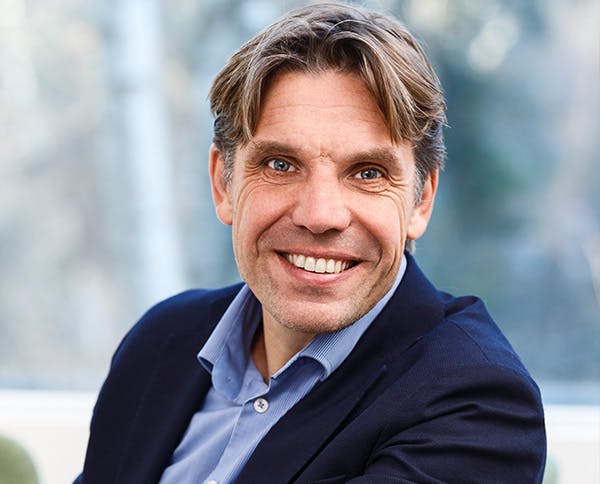‘Unique opportunity to introduce nutrient recycling into sludge management’
2021-01-26
Three quick questions to Erik Odén, CEO of C-Green Technology, about the solution to the problem of the climate impact, overfertilisation and environmental toxins from industrial and sewage sludge.

You make biofuel from wet sludge from municipal sewage works and industrial processes. What is the benefit of such a solution?
– We convert wet sludge from, for example, municipal sewage works and industries into a dry, odourless and sterile product that can be used as biofuel or soil conditioner. The process dramatically reduces greenhouse gas emissions, eliminates viruses and bacteria, and at the same time drug residues, heavy metals and microplastics can be collected instead of ending up in nature. Our technology also means that phosphorus and nitrogen can be recovered and reused in agriculture.
A government inquiry has put forward proposals for more sustainable sludge management. What would the new requirements entail?
– The proposals in the sludge report mean that the Government and the Swedish Parliament have a unique opportunity to modernise and introduce nutrient recycling into Sweden’s archaic sludge management. Two routes forward are proposed, either a total ban on sludge spreading on land or much stricter environmental requirements imposed on sludge before it can be spread. Our technology can play a key role irrespective of the alternative adopted; what is most important is that the Government proceeds as quickly as possible with a tough bill compared to today’s sludge management.
You want to help make the Baltic Sea cleaner, in what way?
– Our main market is currently the countries around the Baltic Sea, and our vision is to help make all of the Baltic Sea’s catchment area cleaner. A string of C-Green plants around the Baltic Sea would have a large positive impact on the water environment. Our technology can reduce the supply of nutrients and put an effective stop to drug residues, viruses and environmental toxins that can escape from sludge spreading and farmyard manuring. Even old polluted banks of fibre in the water outside former paper mills can be cleaned up and the algae and algae bloom problem dealt with.
Erik Odén was interviewed by Jean-Daniel Maurin, Senior Consultant and Partner at New Republic. ´Three Quick Questions…’ is a series of interviews conducted by New Republic.